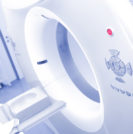Youthful drivers may have the urge to put the pedal to the metal, but older cyclists might want to pause before putting pelvis to the saddle. The bicycle saddle, that is. An online Urology Times article presents the impact of bike riding on men’s health.[i] On the plus side, there are many compelling benefits, including
keep reading










